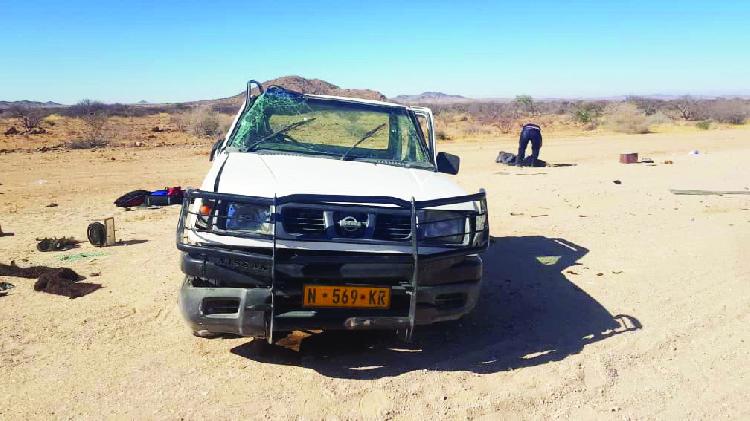Africa-Press – Namibia. THE police have advised road users in rural areas to abide by the rules of the road – especially in areas where no law-enforcement officers have been deployed.
Erongo police acting community affairs coordinator sergeant Anastasia Frans on Sunday said the police find it challenging to enforce road rules and regulations in rural areas, since there are no traffic officers to monitor unlicensed drivers and vehicles.
“Even if there are no traffic officers, the rules of the road remain the same, and they are supposed to be obeyed by all drivers. They must also listen to the radio about road safety,” she said.
Frans spoke to The Namibian following an accident near Uis, which left one person dead and seven others seriously injured on Saturday. According to a police report, the involved vehicle was not roadworthy, and its driver did not have a valid driving licence.
The driver faces charges of culpable homicide, reckless and/or negligent driving, driving an unroadworthy vehicle on a public road, and driving without a valid driving licence.
“The driver has not been charged yet, as he is seriously injured and has been admitted to hospital. He will be charged with the stated offences once he has recovered,” Frans said.
The executive secretary of the National Road Safety Council, Eugene Tendekule, reminded motorists that the rules of the road apply to the whole country and not to urban areas only.
“Just because traffic officers are not there, does not mean we have to behave in a different way. No, we have been talking about the new vision. The journey towards zero deaths and serious injuries on Namibia’s roads is the responsibility of each and every road user,” he said. Tendekule said the council aims to ensure that Namibian roads become safer, as Namibia is known to be one of the worst performers when it comes to road safety in Africa.
He called on all road users to rally behind these efforts to ensure a reduction in fatalities on Namibia’s roads. Tendekule said using open pickups as passenger transport is a huge risk, and that public passenger transport laws are not adequate in this regard.
The Ministry of Works and Transport has been drafting a new public passenger transport bill, which is expected to be passed in the first half of 2022, he said.
“That bill provides a proper regulatory framework under which data would be regulated. In rural areas, small cars cannot reach where bakkies are allowed to transport passengers, even though it is not advisable for bakkies to transport people for reward,” Tendekule said.
In cases where pickups are used to transport passengers for reward, Tendekule advised that road users reduce the number of people transported to at least four, of which all must be seated. He said the sides of the vehicle should be durable to ensure that people do not fall off, and vehicles should be operated at a reduced speed.
For More News And Analysis About Namibia Follow Africa-Press






